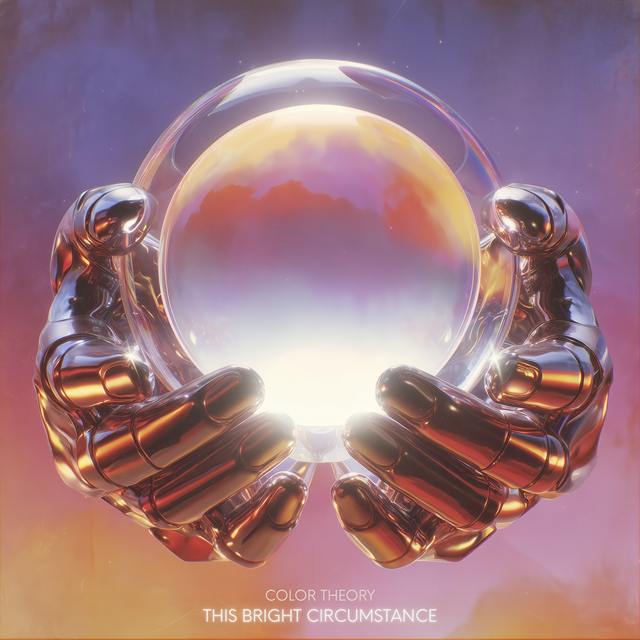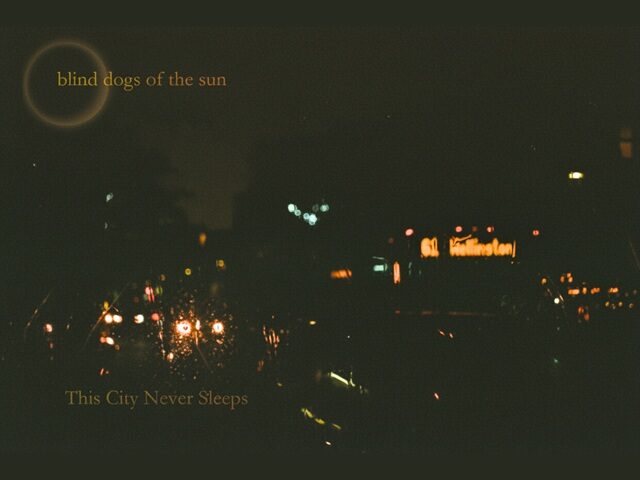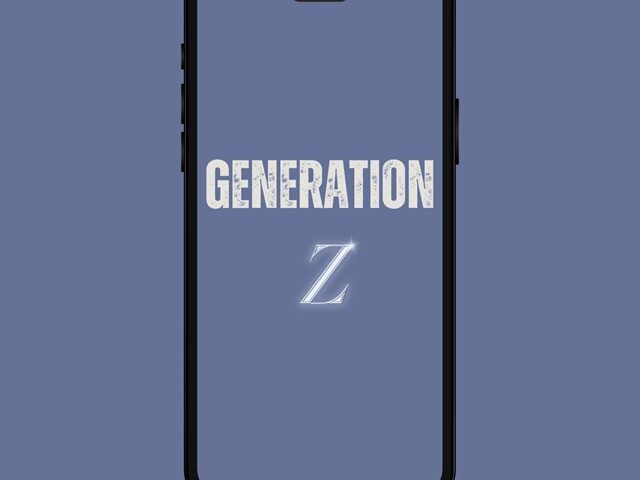
The Bright Circumstance is a captivating electronic pop album from Los Angeles-based artist Color Theory, the project of Brian Hazard. He turns experiences with anxiety, insomnia, and panic attacks into a musical guide for grounding and self-reflection — celebrating personal sincerity and a drive to make the most of each day. Out on October 17th, the album was crafted entirely on the couch using a single hybrid analog/digital groovebox, the Elektron Syntakt, the album blends lush synth textures, pulsing rhythms, and melodic arpeggios into a deeply immersive sound.
Opening the album, “Where Tigers Are Said to Roam” enamors with its range of colorful synth arpeggios and melodic vocal introspection, ruminating on the importance of experiencing things for yourself — rather than drawing from the recollections of others. “They say that tigers roam free In these lands,” Hazard’s vocals let out. “You wonder how that could be / When you’ve never seen one.” The urgings within — “don’t be content to rely on hearsay” — meld with a harmonious synth-pop production for an enjoyable look at what to anticipate throughout the album: a range of hooky, approachable electronic pop delights with a consistent knack for wisdom-imparting lyrical prowess.
The ensuing “The Rehearsal” struts a more bursting synth-forward character, fondly reminiscent of Erasure in its playful tones and rhythms, while the vocal tone presents a deep intensity with shades of Depeche Mode. While the production injects various shades of electronic pop nostalgia, its thematic focus on “the rehearsal” of social interactions is distinctive within the context of Color Theory’s guide-like presence. “I’m the sole architect of each pause,” Hazard’s vocals admit, alluding to moments of awkwardness, while referring to those with clever conversational tendencies: “Improvisation is the skillful way.”
There’s a visceral self-awareness apparent within the opening tracks, ranging from the valuing of one’s own personal experiences to the ability to exist in social interactions with seamlessly engaging charm. “Thoughts Can’t Hurt You” feels like a natural follow-up to these, continuing to tout personal confidence in accepting intrusive or anxious thoughts without judgment. “Thoughts can’t hurt you, don’t usher them away,” Hazard urges during the dreamy central build, inviting “them to stay.” The re-framing of these thoughts as transient visitors, to be observed and released rather than fought, is cathartic — and especially resonating when punctuated by the mixture of trickling arps, bursting synth charisma, and pulsing rhythms that appear throughout.
A particular standout success, “When I Can’t Remember You” melds a more understated synth-pop appeal with a very personal thematic focus. Hazard lost his father last year to Alzheimer’s, and now his mother is in the disease’s advanced stages. “If I’m to befall the same fate, at least I left instructions,” Hazard says of the track, which enthralls as a haunting meditation on memory, mortality, and the fragility of identity. “Hold my hand, guide me through / When I can’t remember you,” he sings as lush synth layers intermingle, beckoning: “Play this song in my room / When I can’t remember you.” The track enamors as a plea and a set of instructions, striving to preserve love, guidance, and selfhood even as cognition fades.
Grimy electronic haziness and percussive pit-patter also shows well on “Near the End,” continuing anxieties of mortality — and here also the restless mind’s inability to stay present as time slips away. “Time is my opponent, lost in the next moment,” Hazard sings, capturing an in-between of acceptance and resistance to the imminent end. Album finale “The Last Time” consumes as well, as the vocals let out “it could be the last time” amidst a spacey synth-pop arsenal. While “Near the End” dwells on the inevitability of decline, “The Last Time” laments how rarely we recognize life’s finalities as they unfold — ultimately urging to seize the day, rather than ignoring death’s quiet approach. With its mix of introspective lyricism and hook-friendly electronic pop, The Bright Circumstance is a thorough success from Color Theory.





